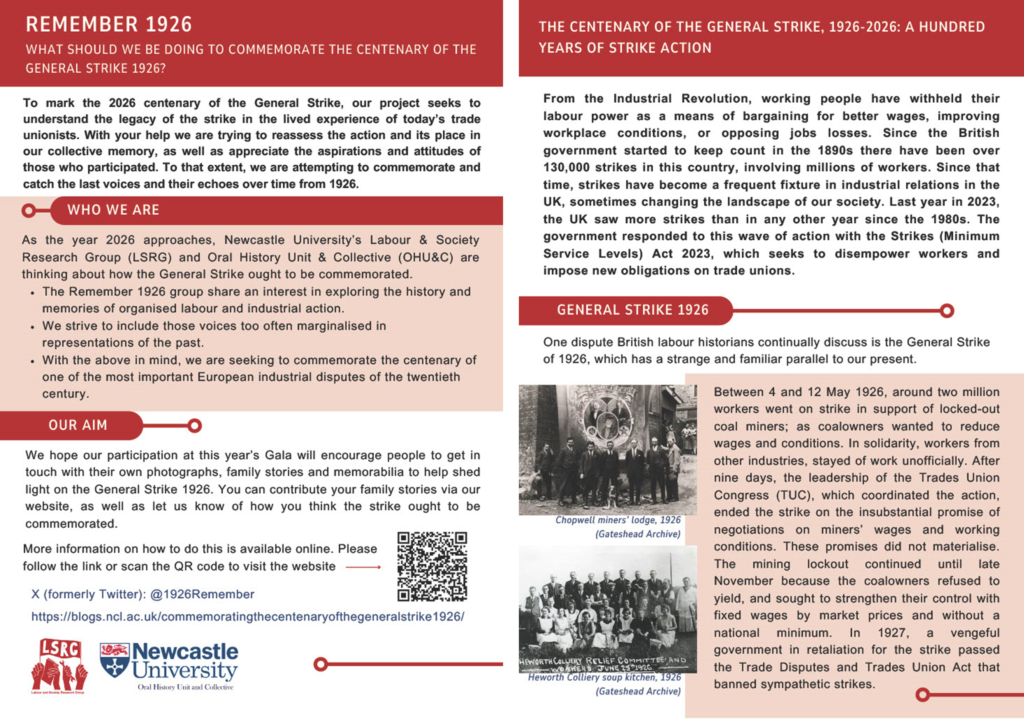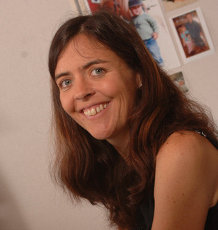Joe Redmayne, a Collective researcher associate, introduces our new “Remember 1926” project and its launch. The project is a collaboration between Newcastle University’s Oral History Collective (OHC) and Labour & Society Research Group (LSRG).
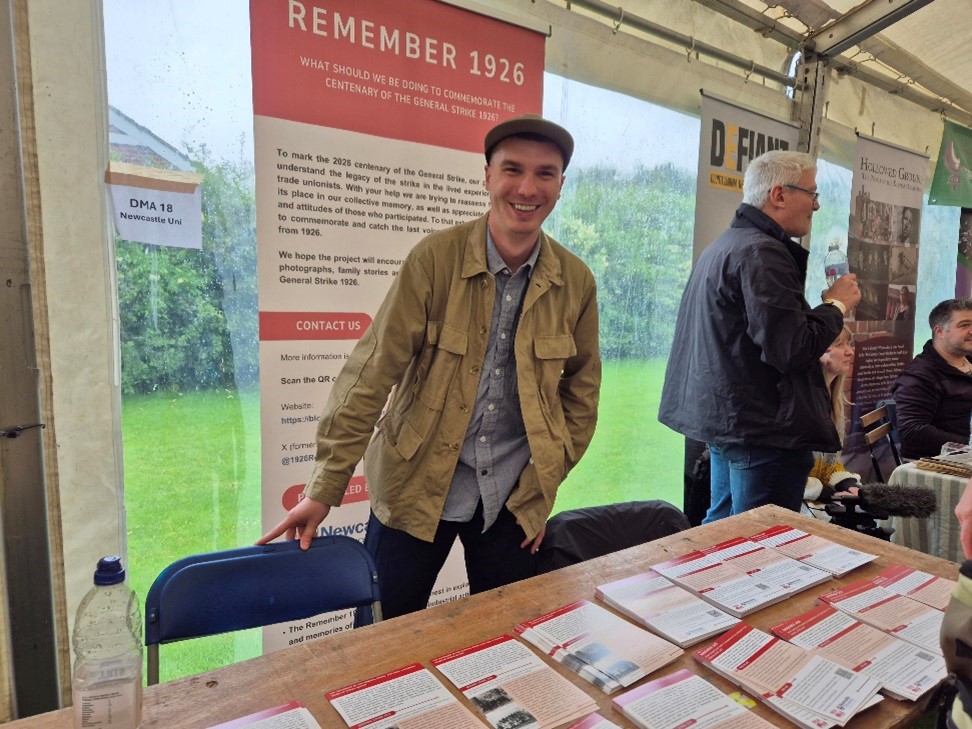
Joe Redmayne at the Durham Miners’ Gala promoting the Remember 1926 project.
The project explores ways in which the centenary of the British General Strike of 1926 ought to be commemorated in two years’ time and seeks to understand the legacy of the strike in the lived experience of members of today’s trade unions and the wider labour movement.
The project launched at the 138th Durham Miners’ Gala on Saturday 13 July 2024, with a stall and leaflets to promote the project among attendees. We would encourage people to get in touch with their photographs, family stories, and memorabilia to help shed light on the General Strike.
Remember 1926 will revisit the General Strike, reassess the action and its place in our collective memory, as well as appreciate the aspirations of those who participated. To that extent, the group is attempting to commemorate and catch the last voices and their echoes over time from 1926.
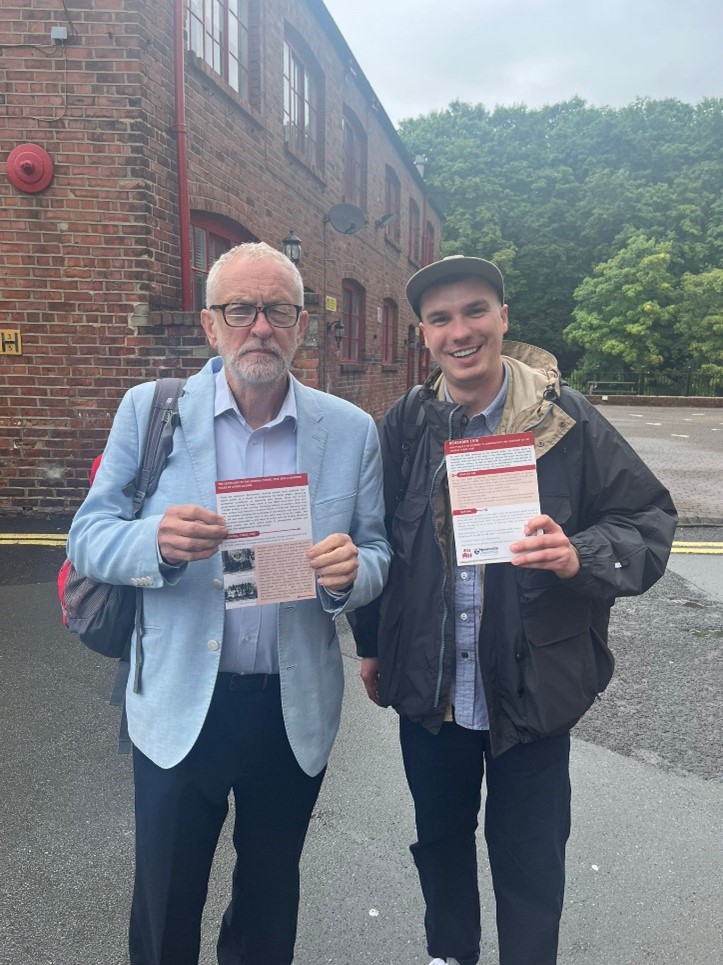
Joe with the former leader of the Labour Party and now Independent MP for Islington North, Jeremy Corbyn, holding the Remember 1926 leaflets (see below).
Get involved
- The Remember 1926 group shares an interest in exploring the history and memories of organised labour and industrial action.
- We strive to include those voices too often marginalised in representations of the past.
- With the above in mind, we are seeking to commemorate the centenary of one of the most important European industrial disputes of the twentieth century.
In the future, Remember 1926 will foster dialogue and prompt collaboration between trade unionists, political activists, academic researchers, community partners, heritage groups, archives, and museums. If you would like to keep updated or get more involved with the project, please complete the following questionnaire via the link (Get involved).
You can visit our webpage and social media below:
https://blogs.ncl.ac.uk/commemoratingthecentenaryofthegeneralstrike1926
@1926Remember If you have any immediate questions about the project, please get in touch with Joe Redmayne via email at j.redmayne2@newcastle.ac.uk
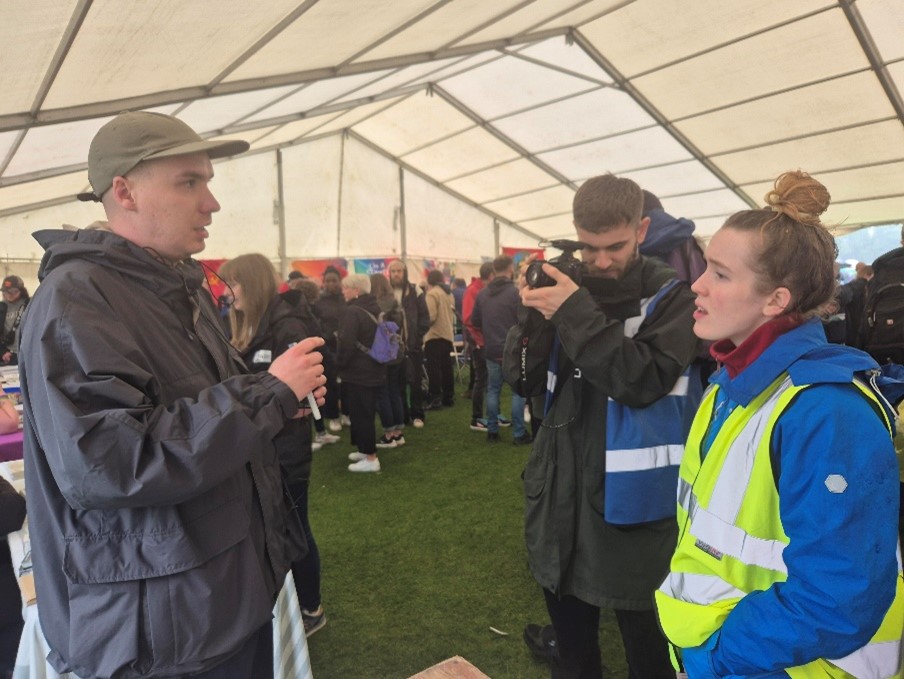
Royal Holloway MA Public History student, Rachel Lawrence, interviewing Joe about the Remember 1926 project and his thoughts about the Durham Miners’ Gala.
Share your family stories, photographs, and memorabilia
If you have a story of an ancestor who participated in the General Strike, please let us know, as we would love to hear your family stories. You can contribute your own family stories via the following link Remember 1926 Questionnaire to help us grasp the different experiences of those involved in the strike and comprehend how your story lives on today.
Please include your name and email address, so we may be able to contact you in the future. Some of the questions the project is interested in answering are listed below: ·
What are the legacies of the General Strike? ·
What difference to Britain did the strike make? · What caused it? Could it have been avoided?
Is it an event still discussed by different generations of workers today? · Are there any family/community histories passed down through generations that still live on in today’s collective memory? · Have these stories shaped the descendants view of the trade union movement? · Why do people still strike today? · How and why should the centenary of the strike be commemorated?
